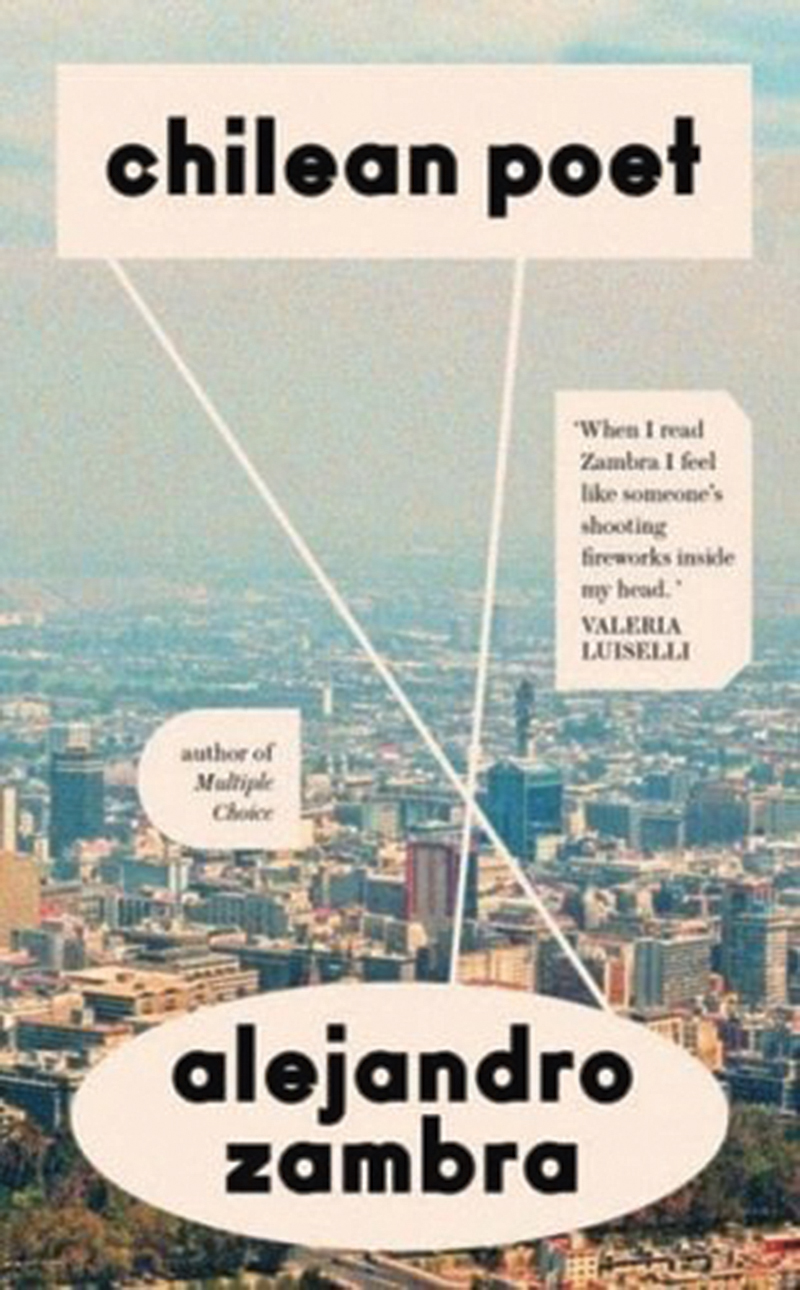For this reviewer at least, there are few newsflashes as thrilling as “a new book by Alejandro Zambra”.
The Chilean poet, essayist and novelist is not especially prolific, but amongst his output are some of the most original writings of the last two decades (Multiple Choice, in which he reveals the story of a difficult father/son relationship and delivers a pin-sharp critique of the Pinochet regime through a series of multiple choice questions, is a masterful feat, and was the Big Issue Book of the Year in 2017).

For lovers of Zambra’s previous work however, Chilean Poet initially raised some misgivings. Long celebrated for his audacious experiments with form and expression, this is a relatively conventional novel. Given Zambra’s rising international reputation, there were fears that the mischievous magician had sold out for Amazonian dollars.
So exquisite is the writing and so excellent the jokes, I could compose this entire review with direct quotes
It doesn’t take long to dispel any concerns. The novel begins with a series of scenes from a teenage romance so convincing, so tenderly wrought, and so laugh out loud funny, that one begins to suspect Chilean Poet might be the best things he’s ever written. The delight in bodies and skin and teeth and tongues; the perpetual rhythm of wild beating-heart anticipation and anti-climax, exulted passion and cynical ennui, panic and serenity: Zambra, with startling clarity, remembers it all.
He also never misses the chance to make his reader laugh out loud. We understand the extent of the awkward young Gonzalo’s commitment to stalling his speedy ejaculation when – after various nullifying fantasies, including one involving the ideologically unlovely Mrs. Pinochet, have failed to do the trick – he finally succeeds with “the cruel method of imagining a man with Parkinson’s trying to eat an artichoke.” Don’t worry, consoles his doctor “It happens to everyone, bud, though I have to admit it’s never happened to me.’
So exquisite is the writing and so excellent the jokes, I could easily compose this entire review of direct quotes, sentences of extraordinary craft and beauty. Its combination of poignancy and belly laughs reminded me at different times of George Saunders, Jojo Rabbit writer/director Taika Waititi and Larry David. The snappy humour dilutes a little as the story moves into adulthood, taking on a more serious tone as it tracks the grown-up resumption of Gonzalo and Carla’s relationship, and the former’s new role as stepfather to Carla’s young son. But the portrait of six-year-old Vicente is a delight and, perhaps because Zambra is the father of a four year old boy, wholly believable in its affectionate observations.









